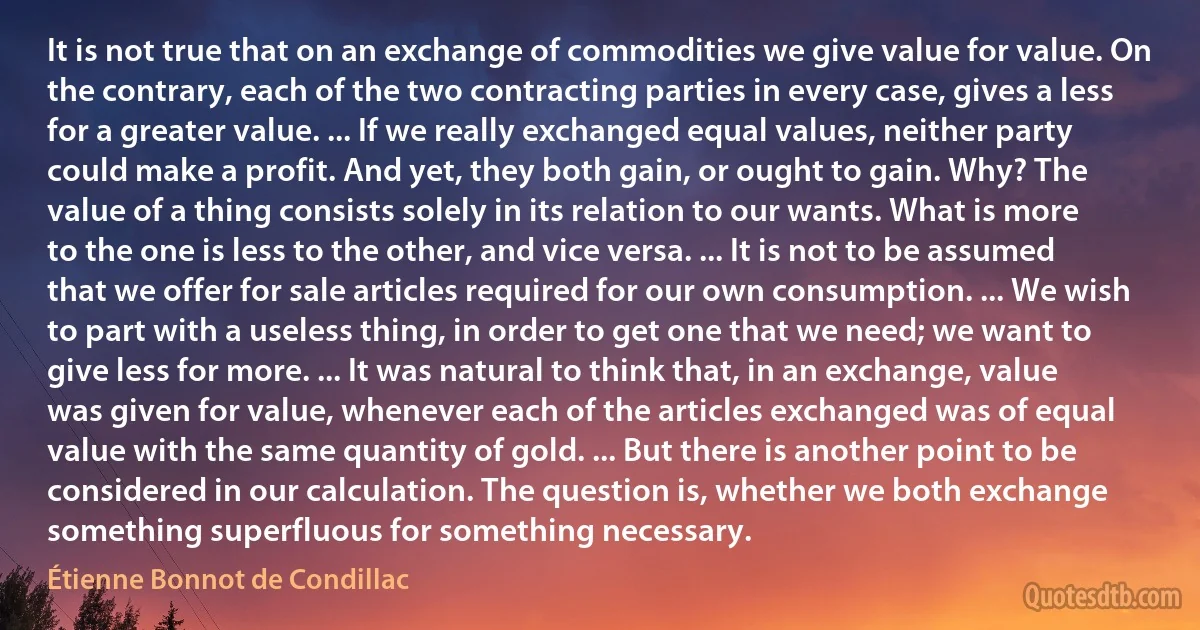Contracting Quotes
A line cannot control pictorial space absolutely. A line may flow freely in and out space, but cannot independently create the phenomenon of push and pull necessary to plastic creation. Push and pull are expanding and contracting forces which are activated by carriers in visual motion. Planes are the most important carriers, lines and points less so.. .the picture plane reacts automatically in the opposite direction to the stimulus received; thus action continues as long as it receives stimulus in the creative process. Push answers with pull and pull with push. ... At the end of his life and the height of his capacity Cézanne understood color as a force of push and pull. In his pictures he created an enormous sense of volume, breathing, pulsating, expanding, contracting through his use of colors.

Hans Hofmann
As we read this, we stand in the plane of the present; we are the sum of all our ancestors, and the origin of all our descendents. In terms of our model, we are at an ever-changing origin, located on the boundary of past and future. As well, we are spinning with the earth, spiralling with the galaxy, and expanding or contracting with the universe. As origins, we are on the move in time and space, and all these movements have a characteristic pulse rate.

Bill Mollison
But with the passing of time, a peasant became a tribal and from tribal a beast. William Finch, writing at Agra about 1610 C. E., describes how Jahangir and his nobles treated them - during Shikar. A favourite form of sport in Mughal India was the Kamargha, which consisted in enclosing a tract of country by a line of guards, and then gradually contracting the enclosure until a large quantity of game was encircled in a space of convenient size. "Whatever is taken in this enclosure” (Kamargha or human circle), writes Finch, "is called the king's shikar or game, whether men or beasts... The beasts taken, if man's meat, are sold... if men they remain the King's slaves, which he sends yearly to Kabul to barter for horses and dogs: these being poor, miserable, thievish people, that live in woods and deserts, little differing from beasts.”89 W. H. Moreland adds: "Other writer (also) tell it besides Finch.”.

Jahangir
If one starts with the assumption that, in the absence of specific Congressional authority, a fixed rule of law precludes contracting officers from providing in a Government contract terms reasonably calculated to assure its performance even though there be no money loss through a particular default, there is no problem. But answers are not obtained by putting the wrong question and thereby begging the real one.

Felix Frankfurter
It is not true that on an exchange of commodities we give value for value. On the contrary, each of the two contracting parties in every case, gives a less for a greater value. ... If we really exchanged equal values, neither party could make a profit. And yet, they both gain, or ought to gain. Why? The value of a thing consists solely in its relation to our wants. What is more to the one is less to the other, and vice versa.

Étienne Bonnot de Condillac
When the members of any nation have come to regard their country as nothing more than the plot of ground on which they reside, and their government as a mere organization for providing police or contracting treaties; when they have ceased to entertain any warmer feelings for one another than those which interest or personal friendship or a mere general philanthropy may produce, the moral dissolution of that nation is at hand.

Nile Kinnick
We are forced, in equity, to share the government with the working class...If there is a free contract, in open market, between capital and labour, it cannot be right that one of the two contracting parties should have the making of the laws, the management of the conditions, the keeping of the peace, the administration of justice, the distribution of taxes, the control of expenditure, in its own hands exclusively. It is unjust that all these securities, all these advantages, should be on the same side...Before this argument the ancient dogma, that power attends on property, broke down. Justice required that property should-not abdicate, but-share its political supremacy.

John W. Campbell



